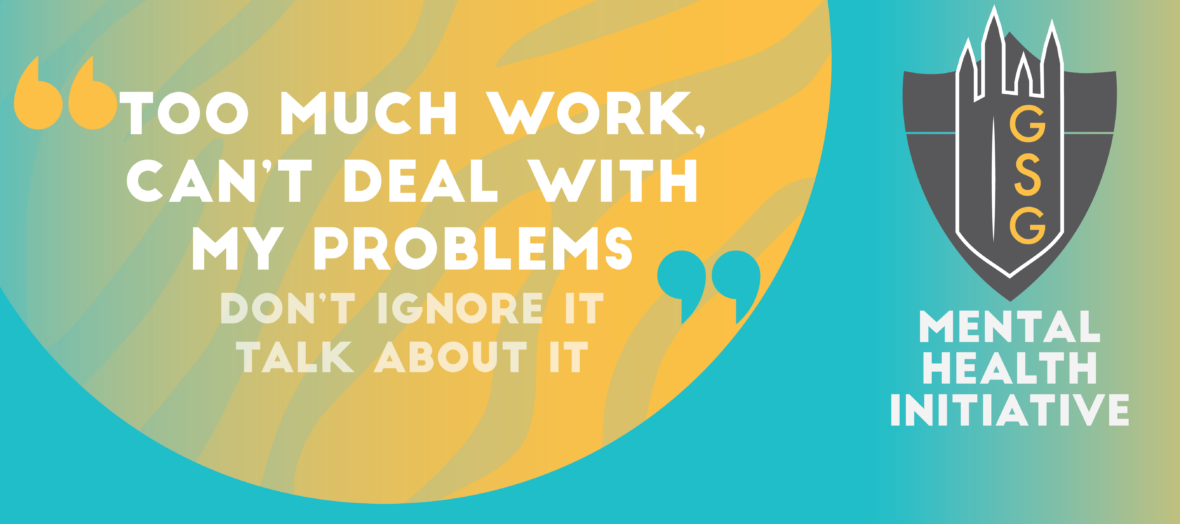 There are times that I feel such overwhelming stress and fear and obligation and hopelessness pushing down on me that I can’t leave my apartment. There are days that I feel such mounting anxiety with every step towards my office that I feel like I’m choking and have to turn around. There are the panic attacks (a wonderful new development just in time for writing my dissertation), the rumination spirals, the self-recrimination, the isolation, the hopelessness. So what helps? Sharing with others has been surprisingly liberating and supportive. I’ve kept these struggles largely invisible to others (partly from the shame of having these problems – which of course just reinforces the problem), but almost every time I’ve shared my experiences with someone, I find they are not unique. I am not alone, and you are not alone. The commonality of depression and anxiety in grad school speaks to structural problems of graduate education – not a personal or moral failure in me, or you, or any other grad student struggling with mental health. This reflects a failure of institutions (PIs, research groups, departments, universities, funding agencies) to prioritize our well-being in a meaningful way.
There are times that I feel such overwhelming stress and fear and obligation and hopelessness pushing down on me that I can’t leave my apartment. There are days that I feel such mounting anxiety with every step towards my office that I feel like I’m choking and have to turn around. There are the panic attacks (a wonderful new development just in time for writing my dissertation), the rumination spirals, the self-recrimination, the isolation, the hopelessness. So what helps? Sharing with others has been surprisingly liberating and supportive. I’ve kept these struggles largely invisible to others (partly from the shame of having these problems – which of course just reinforces the problem), but almost every time I’ve shared my experiences with someone, I find they are not unique. I am not alone, and you are not alone. The commonality of depression and anxiety in grad school speaks to structural problems of graduate education – not a personal or moral failure in me, or you, or any other grad student struggling with mental health. This reflects a failure of institutions (PIs, research groups, departments, universities, funding agencies) to prioritize our well-being in a meaningful way.
Barring the dismantling of toxic academic culture, what else helps? I’ve found medication and Cognitive Behavioral Therapy enormously helpful. Medication gave me the space to start working on myself, while CBT helped with identifying unhealthy thought patterns, developing positive habits, and putting structures in my life that help me stay balanced. I work every day to prioritize myself and my wellbeing and to define success in graduate school on my own terms. I lean on my friends and family. I spend time outdoors. And I remind myself that it gets better. It’s hard and it’s a struggle, but it can and will get better.
